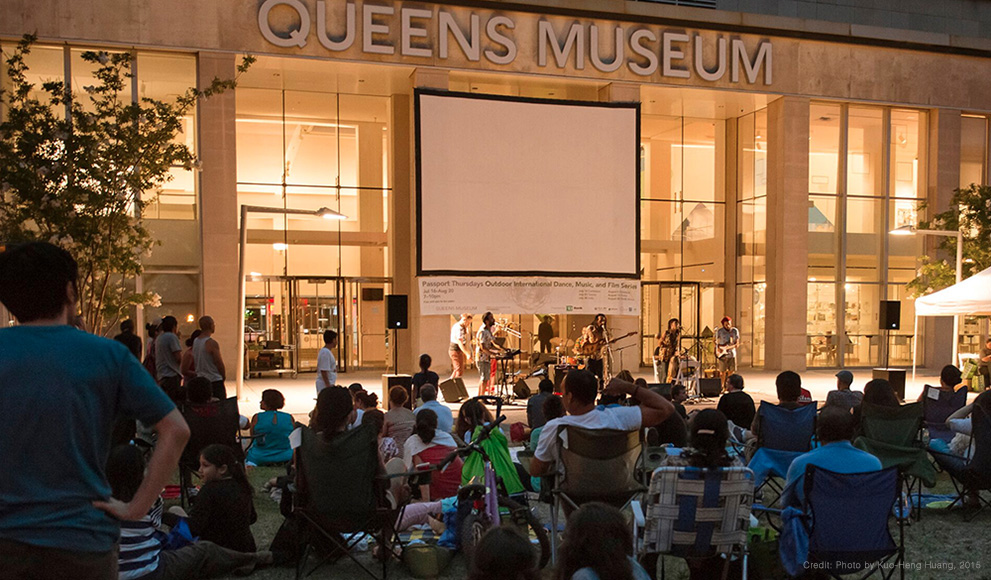Professor Peggy Levitt's Work is Influencing Debates on the Future of Museums

Museums must embrace diversity if they are to survive and thrive, according to Peggy Levitt, chair and professor of sociology. "If museums don’t act now to fulfill a cultural contract that demands they serve audiences beyond their traditional patrons, their continued relevance into the twenty-first century will be seriously at risk," wrote Levitt in an opinion piece for the National Journal titled "Museums Must Attract Diverse Visitors or Risk Irrelevance."
In the National Journal, Levitt used the Queens Museum in New York City as an example of an institution that is reaching out to all of its constituents, including the Ecuadorian immigrants that are among its many neighbors. She explained that the museum brought in an Ecuadorian artist who created an installation that drew on the truck drivers who parked nearby. "Since many were undocumented and could not visit their families, the artist helped them write 'video letters' to send home, which the museum then showed publicly," Levitt wrote. "Thus began a series of curatorial exchanges, artistic projects, and public programs with South and Central America."
Renowned New York Times art critic Holland Cotter recently praised Levitt's new book, Artifacts and Allegiances: How Museums Put the Nation and the World on Display, in a feature he wrote about "the 21st century museum." Her book marshals five years of interviews with museum directors, curators, and educators to argue that museums must embrace diversity if they are to survive and thrive. Cotter recommended Levitt’s book as he called for inventiveness and experimentation in the museum world. He pointed readers to the book as an example of a work that offers "a comparative look at some recent methods" of "interdisciplinary, cross-cultural, self-critical, heterodox…approaches to art [that] will have to be tried out if an audience for history, which is only as alive as our sense of investment in it, is not to be lost."
For another publication, Zocalo Public Square, Levitt asked, "Can Museums Create Common Ground in Diverse Societies?" Levitt's travels around the globe offer her a unique insight on this question. She wrote about the Museum of World Culture in Gothenburg, Sweden, which regularly hosts exhibitions on climate change, immigration, and human trafficking "to help visitors understand that global problems are also Swedish problems." Of the museums and exhibitions her article cites, Levitt said, "What links these activities is a belief in the transformative power of art and in the role that artists can play in connecting immigrants and the broader community."
Levitt is also a senior research fellow at Harvard University’s Weatherhead Center for International Affairs and the Hauser Center for Nonprofit Organizations where she co-directs the Transnational Studies Initiative.
